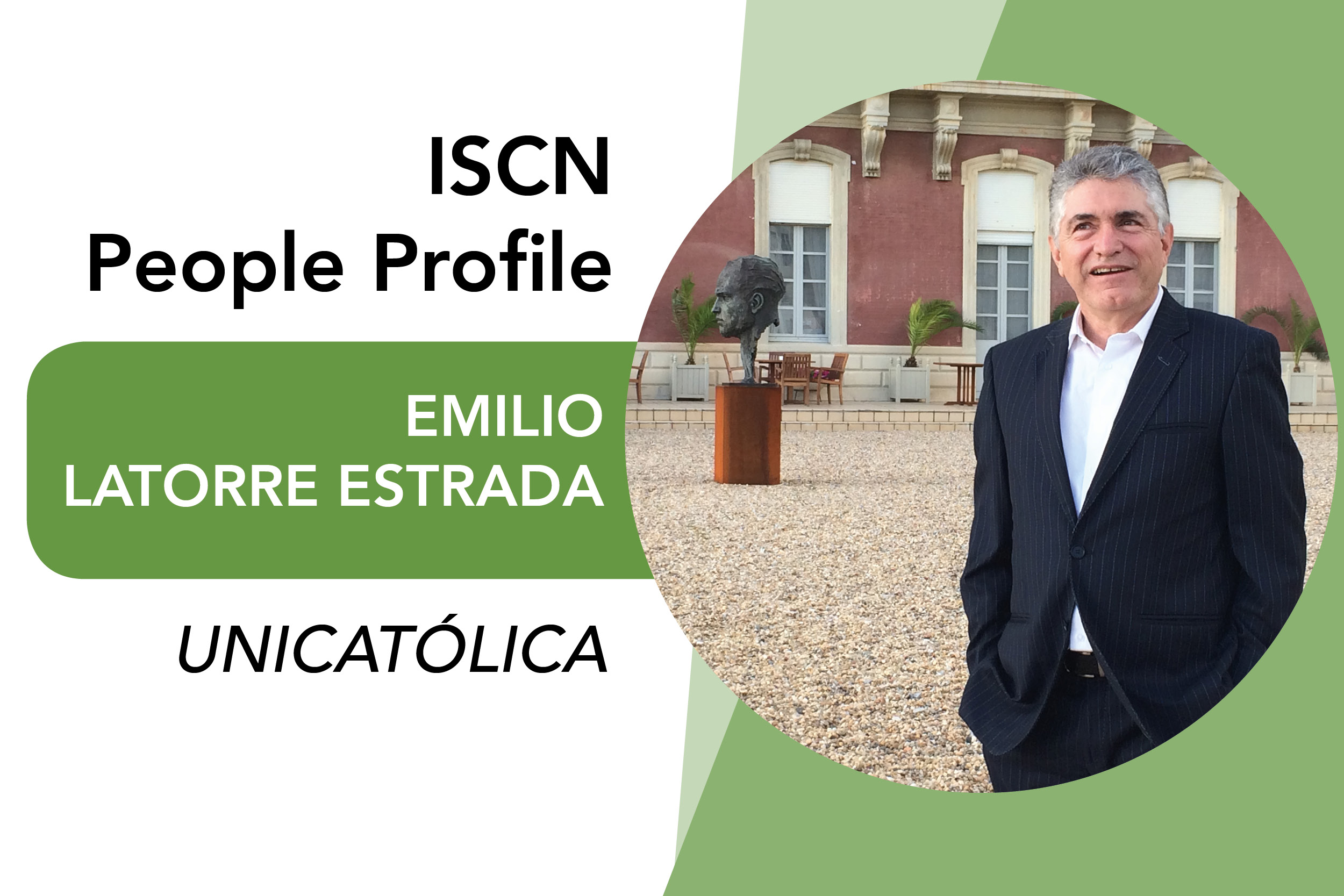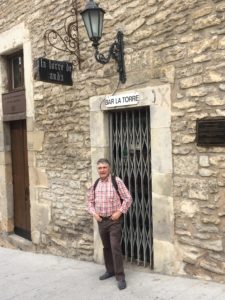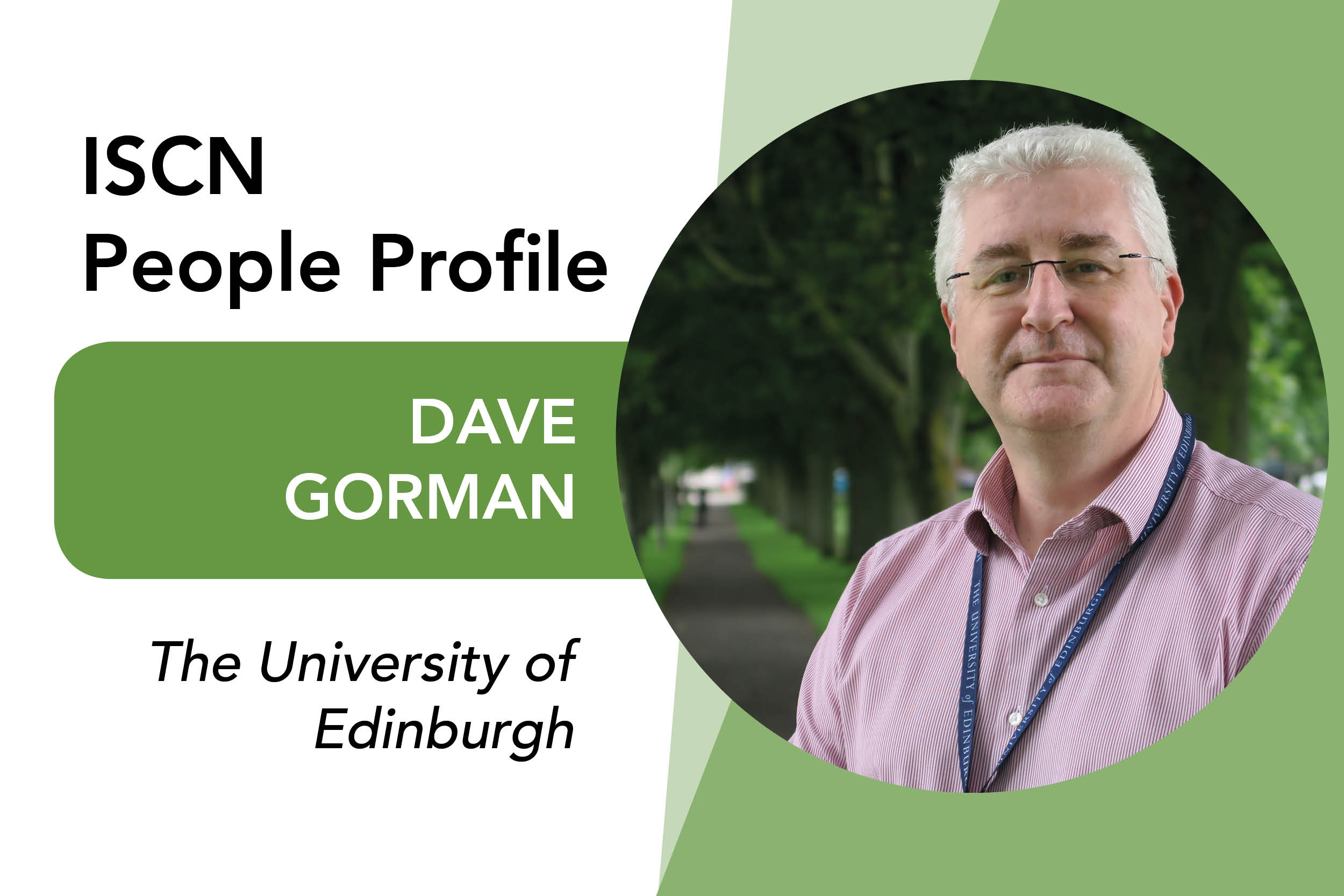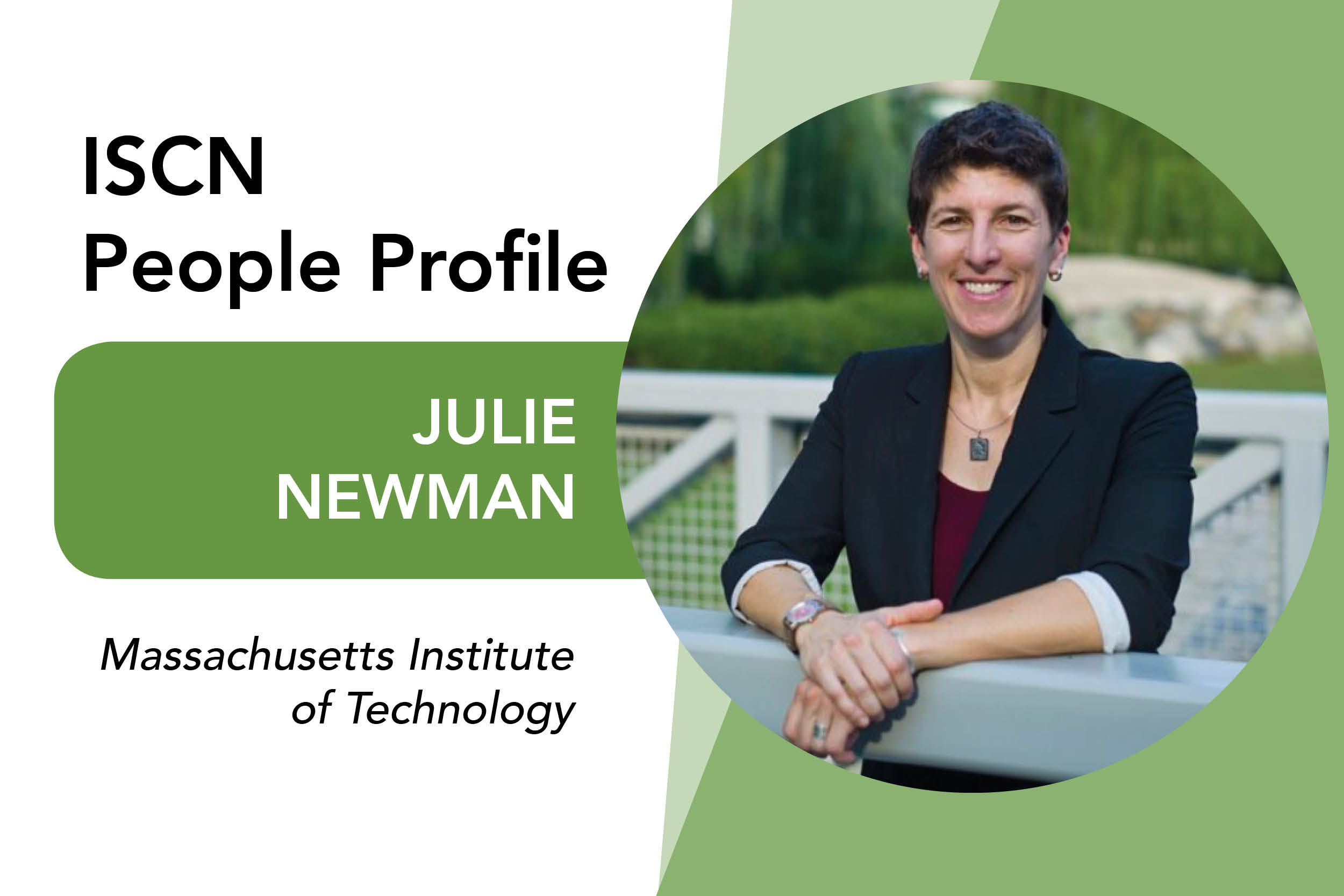Emilio Latorre Estrada
Emilio Latorre Estrada is the Director of the Sustainable Campus Office at Fundación Universitaria Católica Lumen Gentium - UNICATÓLICA in Cali, Columbia.
"As an engineer, an urban and regional planner, and a dreamer, I believe it is still possible to reconnect Society with Nature."
Big Idea(s) for Advancing Sustainability in Higher Education
What does the world need most right now?
The world needs truth and organisations that are reliable and respected so that they can speak about the realities that are the consequences of objective research, based on real facts. Maybe this organisation could be it, universities that come together in networks at the local, regional, national and international level (like ISCN) and speak loudly about environmental problems, inequalities, segregation, neocolonialism, racism and classism, the scandal of wars still in the twenty-first century, and animal protection, among many other things. It is impossible to speak about sustainability without considering the social and political aspects. But finally, the worst that could happen is to generalise the idea of not doing anything to change the world, because the worst thing an individual can do is too little. We must behave responsibly with others and with Nature, before we think of changing the actions of others.
Leadership and Inspiration
What does excellent leadership look like to you?
Leadership is the capacity to move other people around, ideas, and common purposes and at the same time give them the possibility of public recognition and visibility.
Tenacity and Perseverance
What is the biggest implementation barrier you see? What would you need to overcome it?
The biggest obstacle for implementing democracy, sustainability, and equality is selfishness. We humans think individually, we live in crowded cities that depend on the region in which they are situated, and still believe that we are not dependent on others and on nature. Culture is the biggest barrier to equality, sustainability, and overcoming sexism and classism. One of the most important things to change in our perception of the world at all levels is to change selfishness to collaboration. The pandemic could not have been controlled without collaboration, and in the same way climate change, inequality, migration, and poverty cannot be overcome without collaboration. Compete to collaborate, not to win. That would be the real purpose of cultural change and education in the face of the big problems we have to solve.
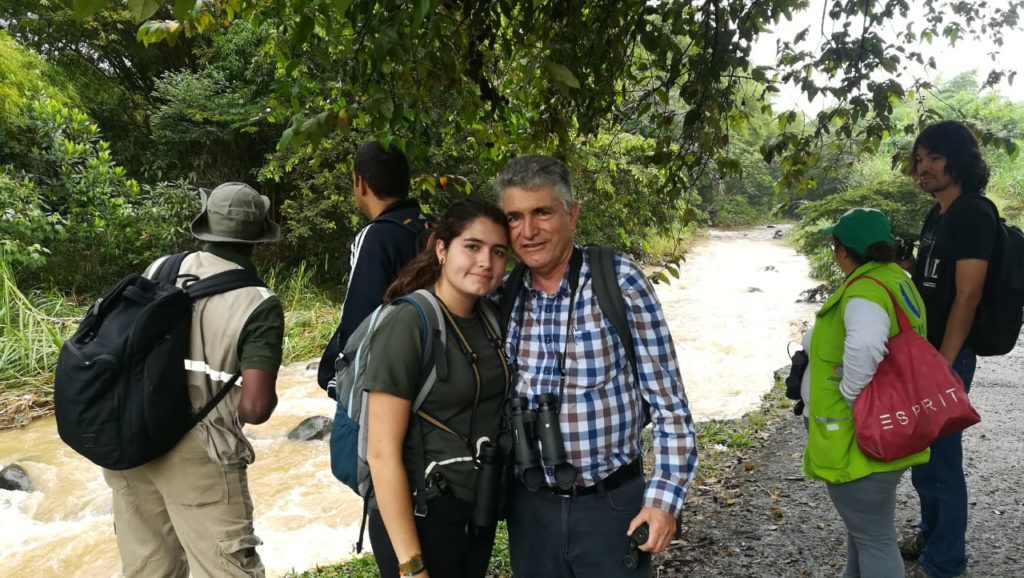
Fun Fact
What is your favourite activity in your spare time?
When I spent my sabbatical in South Carolina, USA a friend used to have bird feeders in her rural home. But to my surprise, when I came back to Colombia, I learned that I lived in the number one country for bird watching in the world, and that I had lived with birds without seeing them. So, I became a bird watcher and that changed my life. Because you can do birdwatching wherever you go. But always, always, see them in freedom.
Dave Gorman
Dave Gorman is the first-ever Director for Social Responsibility and Sustainability at The University of Edinburgh, a post he has held for 9 years.
Dave and his team support the University to deliver on its commitment to make a positive impact on the world, meet climate targets, consider human rights in activities, and innovate to generate positive social and environmental change in society.
Big Idea(s) for Advancing Sustainability in Higher Education
We have all had to adjust to how we are working over the last two years – any insights that are game changers for you?
I think the last two years of dealing with Covid has taught me three things:
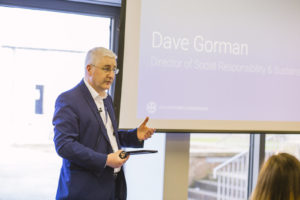
Firstly, that whilst we can indeed work 100% remote and virtual, we shouldn't. Universities are places for ideas and innovation; those ideas flow many times from the serendipitous conversations and can be hard to replicate if life is a series of Teams calls.
Secondly, I learned what a fundamentally important role Universities can play in society and during crises. Our university was doing everything from fundamental vaccine and virus research, to 3-D printing of scarce masks, to emergency community grants, to diverting surplus iPads and laptops to families in need to allow education to continue remotely.
Finally, I learned, just like after the 2008 financial crash – that we can pivot very quickly when we need to and when an emergency is in front of us – so how can we use that knowledge to make the same case for the climate crisis?
Leadership and Inspiration
What does excellent leadership look like to you?
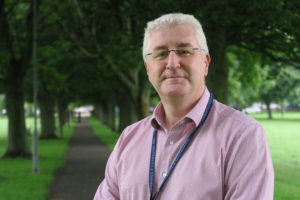 For me, an excellent leader knows and understands the context they work in. That means actively scanning the horizon for emerging issues, knowing their organisation inside out, and understanding their local area and the key stakeholders. A leader has a vision of where we need to go and a sense of how to get there. They know how organisational change happens, and how to communicate well and persuade. They own decisions but share the credit and support their staff fully whilst expecting high standards and strong performance.
For me, an excellent leader knows and understands the context they work in. That means actively scanning the horizon for emerging issues, knowing their organisation inside out, and understanding their local area and the key stakeholders. A leader has a vision of where we need to go and a sense of how to get there. They know how organisational change happens, and how to communicate well and persuade. They own decisions but share the credit and support their staff fully whilst expecting high standards and strong performance.
Sustainability leaders need to create spaces for people to innovate and collaborate, and to ensure they have a measure of resilience – change is hard! Finally, an excellent leader has a certain humility, knowing their limits, sharing praise widely, admitting when they don't know, and they must always keep on learning...
Tenacity and Perseverance
The Climate Emergency we face feels like the greatest challenge of our lifetime – what keeps you inspired to keep working at it?
It can be hard to keep trying - I've been trying to alert society to the urgency of climate change for 30 years, and the IPCC reports just keep coming and emissions keep on rising. But there are plenty of signs of hope. Most people do want to tackle climate change, technology and innovation are moving apace, and as the IPCC says, we have all the tools we need to tackle this crisis.
More fundamentally for me, it's about more than technology and policies, it's about values and fairness. I have children, I want a better world for them. I don't want to be the generation that knew but did nothing. I know that climate change is fundamentally an issue of justice, I believe we owe nature the right to exist, and it's abundantly clear those most affected by climate did the least to cause it. So, when I am struggling, I think of my children, I think about nature, I think about fairness, and I think about the legacy I want to leave - and I go again.
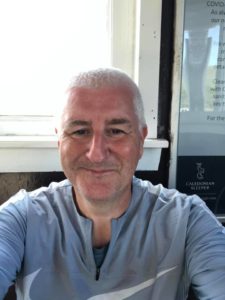
Fun Fact
What is your favourite activity in your spare time?
I love nature and the outdoors and living in Scotland there is plenty to see though I often don't make the time for it that I should. I did my first ever solo wild camping at the age of 52 last summer - I learned that I love it, that 40 pounds on a backpack for 16 miles is hard work and I especially learned why it is that most others I saw were under 40 years of age! This summer I will return with lighter gear and a little more humility.
Julie Newman
Julie Newman PhD is the founding Director of Sustainability and lecturer with the Department of Urban Studies and Planning, at the Massachusetts Institute of Technology.
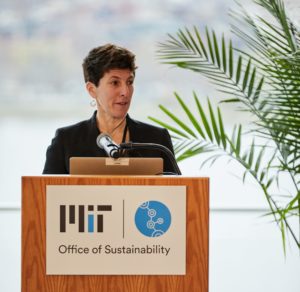
In 1995 Julie returned from Guatemala where she served as an environmental management Peace Corps volunteer and enrolled in graduate school to explore and develop a deep understanding of sustainable development, which was still a new concept at the time. She worked for the University Leaders for a Sustainable Future as a graduate assistant and then joined the University of New Hampshire to assist with the launch of the Office of Sustainability in 1997.
From there Julie headed to Yale University in 2004 to launch the Office of Sustainability where she also held a lecturer role with the School of Forestry and Environment. While at Yale she founded the Northeast Sustainability Consortium which is still active today. In 2013, Julie moved to MIT as the Founding Director of Sustainability and launched their inaugural Office of Sustainability. She has since built a program that includes 9 staff [as of FY23], 2 Faculty Fellows and 12 student research assistants. Julie was an inaugural member of ISCN representing Yale University at the time.
Big Idea(s) for Advancing Sustainability in Higher Education
What does the world need most right now?
We must look beyond ourselves and embrace and acknowledge the interconnectedness and the impact that our lifestyle choices, organizational systems, and regulatory structures upon which we depend have on the state of the world today. Secondly, we are embedded in systems that warrant different scales of solution development and must consider and develop a deep understanding of our actions at the level of the: individual-the campus [for those of in higher education institutions]-the city-the state/territory-the country-and in the globe.
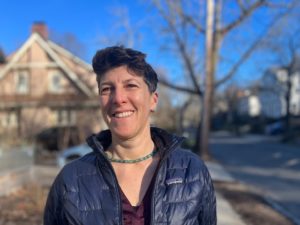
Leadership and Inspiration
What does excellent leadership look like to you?
Excellent sustainability leadership calls for deep humility, open collaboration and transparency, and a willingness to not be credited for the success. A desire to find common ground with those you may not see eye to eye. Additionally, sustainability leadership calls for a need to work across disciplines and expertise that are not your own and calls for us to act decisively to pull the multiple perspectives together to inform our understanding of the complexity of the challenge and the potential solution. Excellent sustainability leadership calls for developing a team that compliments your strengths and a willingness to solicit and learn from different perspectives. Excellent leaders create space for ideation and listening to empower others to lead the way and developed a sense that the community is in this together.
Tenacity and Perseverance
The Climate Emergency we face feels like the greatest challenge of our lifetime – what keeps you inspired to keep working at it?
I carry a deep sense of responsibility to both as an individual and as part of a collective, solve for a net zero future with the greatest of integrity and urgency. I continue to experience how solving for a net zero future enables the creation of new multi-disciplinary partnerships and provides common ground between unique individuals. I am continuously inspired by those I am surrounded by who are equally committed to strive and solve for a net zero future which provides a deep sense of hope that we will figure this out, even in times of despair. At MIT I co developed a course with a faculty member from Mechanical Engineering, entitled “Solving for Carbon Neutrality” and each Spring we work with a multi-disciplinary group of remarkable students, who become trained in both carbon accounting and Net Zero scenario planning. Developing that space to study, analyze and plan in a learning environment provides new angles on a familiar challenge.

Fun Fact
What book is a must-read and why?
Coal, by Barbara Freese, is a must read by those of us attempting to mitigate and plan for a net zero world. Coal provides the historical perspective on the emergence of our dependency on an energy system that fueled our homes, our economy and our industry while also fueling systems of injustice, economic disparity and a public health crisis. We must understand the lessons learned and opportunities sought over the 800 year period we have relied on coal to inform how we transition and transform our energy sector today.
